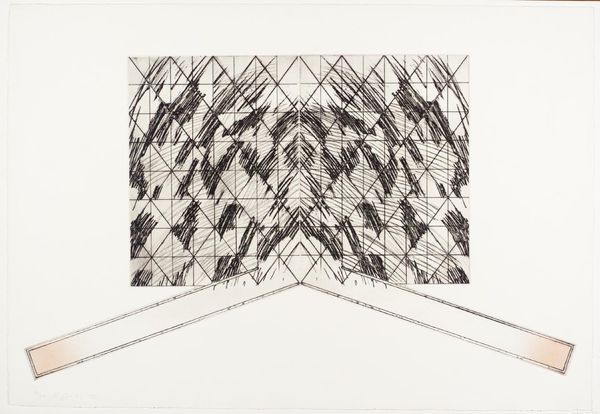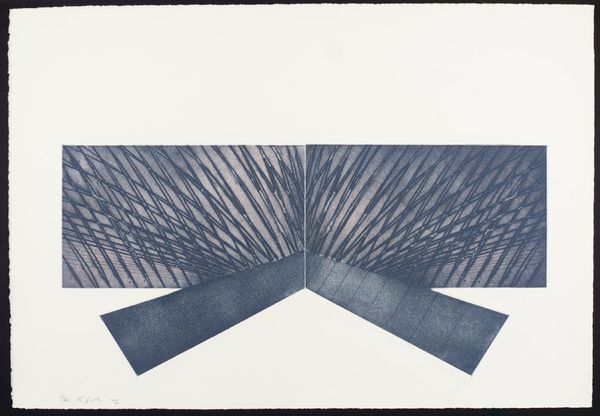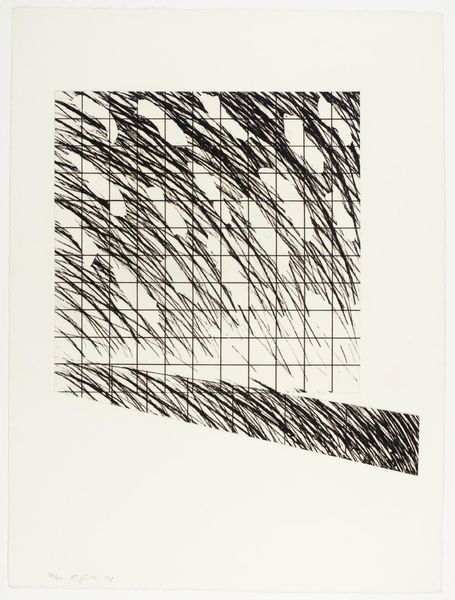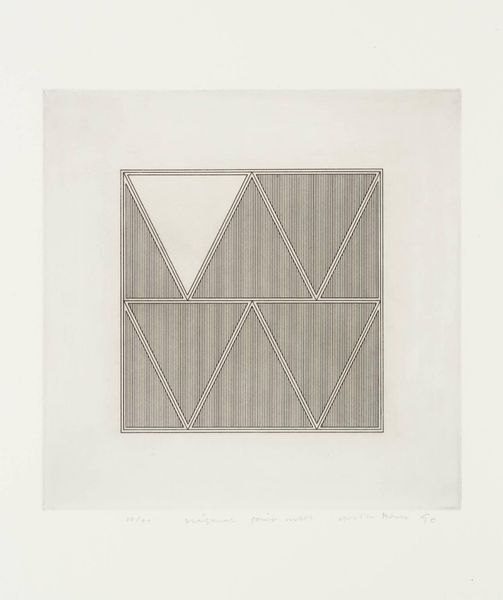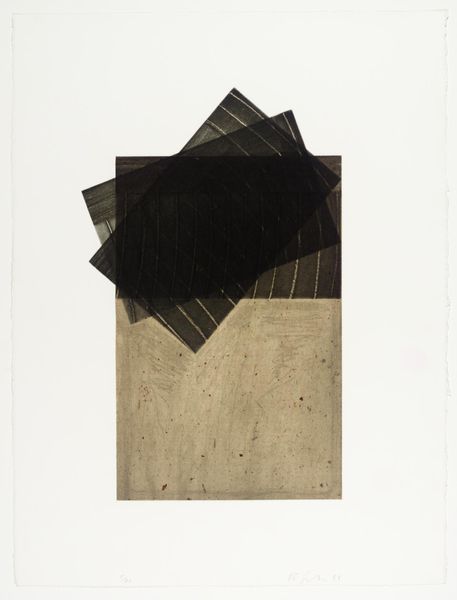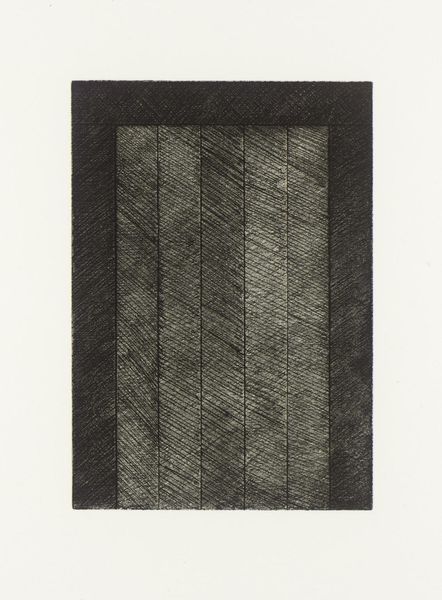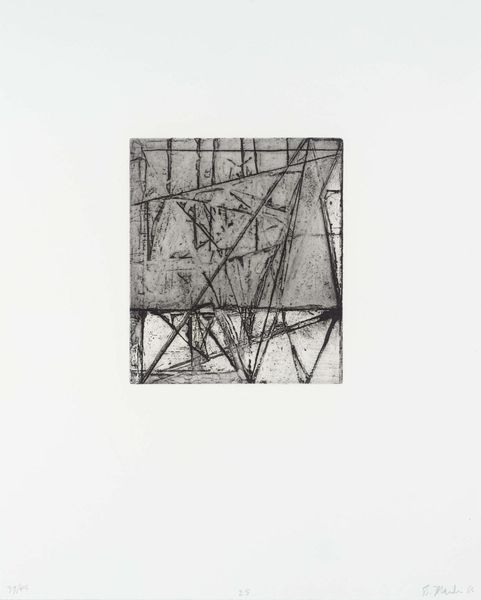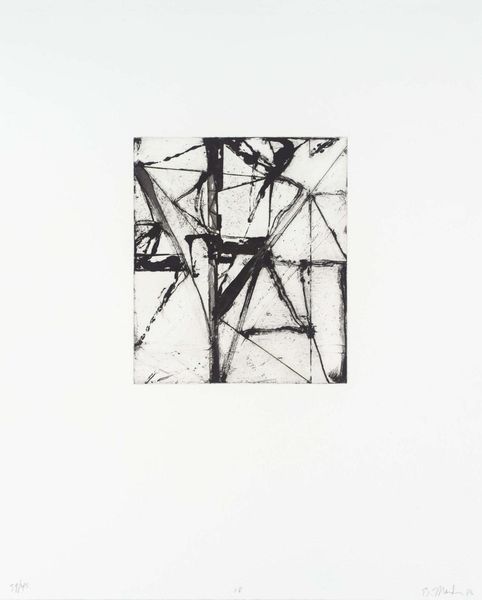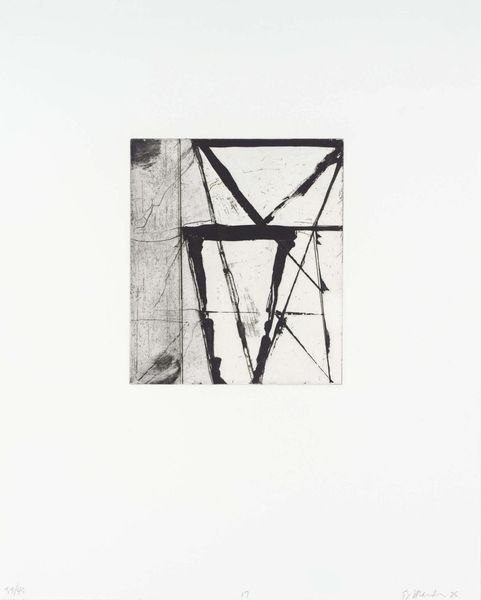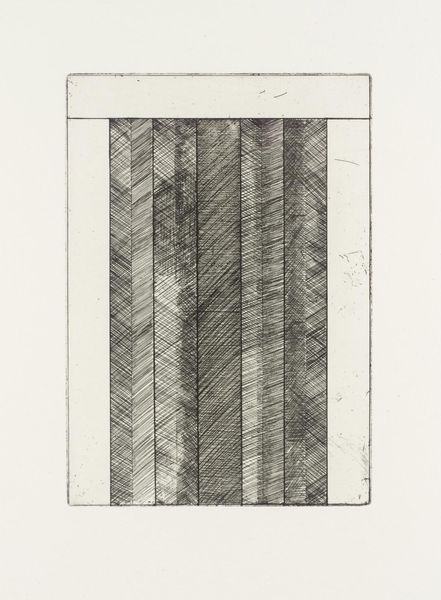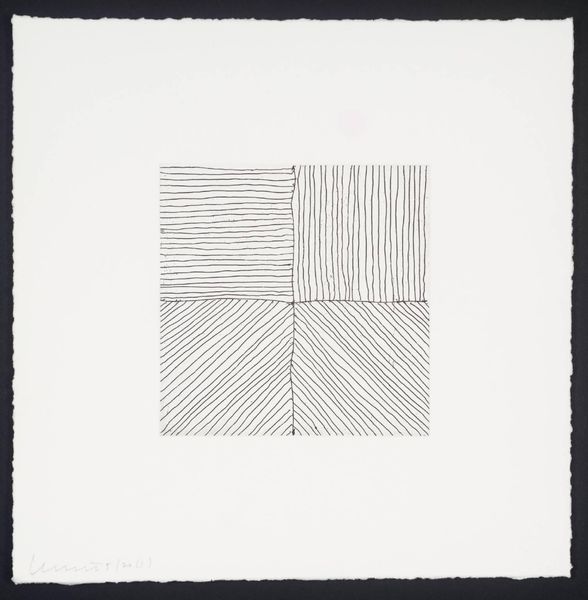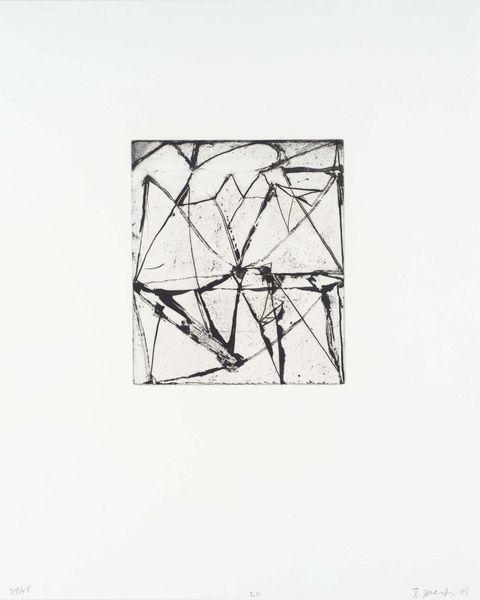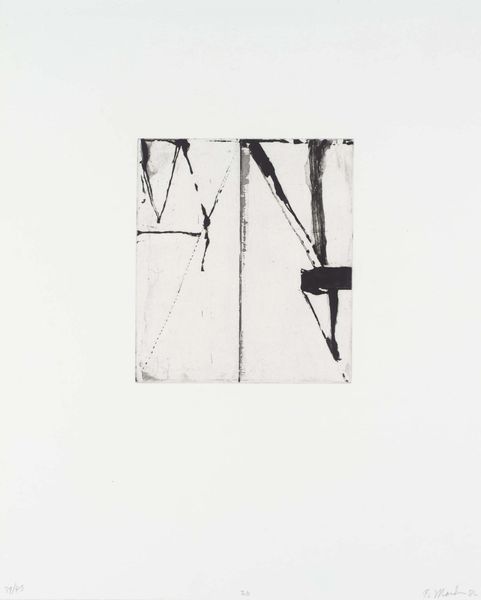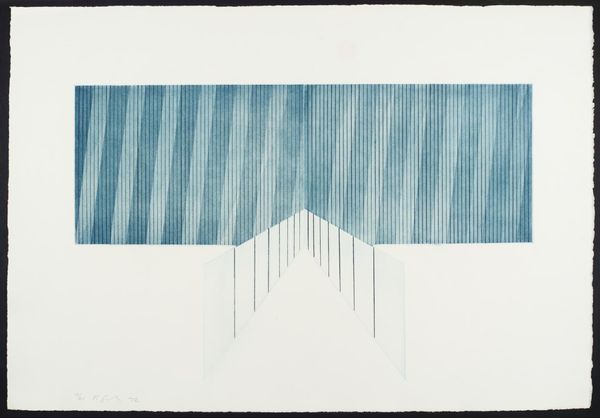
Dimensions: image: 639 x 930 mm
Copyright: © Richard Smith | CC-BY-NC-ND 4.0 DEED, Photo: Tate
Editor: This is Richard Smith's "I," a print from 1972. The overlapping geometric forms and the hatching create an interesting sense of depth. How do you interpret the materiality and process in this work? Curator: The lithographic process allows Smith to explore repetition and variation. Consider how the mechanical reproduction contrasts with the handmade quality of the marks. Does this tension speak to the industrialization of art production? Editor: It does, especially considering the labor-intensive process of creating the print, then mass-producing the copies. Curator: Exactly. The print exists as a commodity, shaped by the cultural and economic context of its creation, while retaining traces of the artist's hand. What does that contradiction suggest to you? Editor: That mass production doesn’t necessarily negate the artist's intention or the artistic value. There's still a human element present. Curator: Precisely. Examining the means of production reveals how the artist negotiates the shifting boundaries between fine art and industrial craft. Editor: I see it now; it’s a reflection on art’s place in a consumer-driven society. Thanks!
